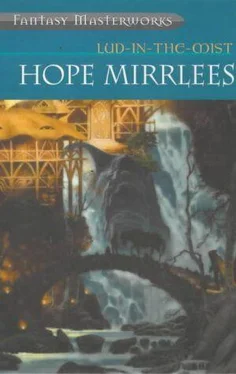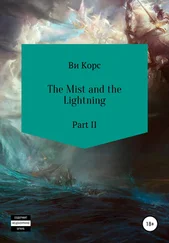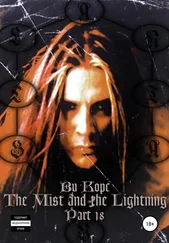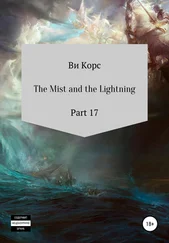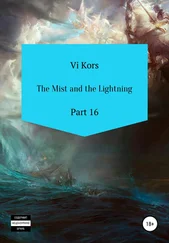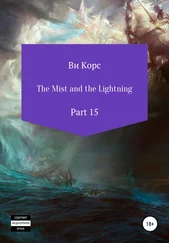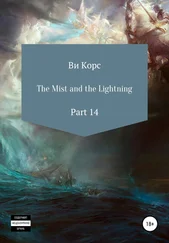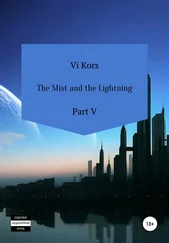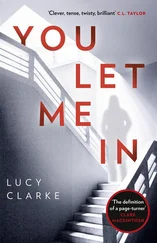These trifles clearly belonged to a later period than the masks and costumes. Nevertheless, they, too, seemed very remote from the daily life of the modern Dorimarites.
Well, when they had whitened their faces with flour and decked themselves out to look as fantastic as possible, Master Nathaniel seized one of the old instruments, a sort of lute ending in the carving of a cock's head, its strings rotted by damp and antiquity, and, crying out, "Let's see if this old fellow has a croak left in him!" plucked roughly at its strings. They gave out one note, so plangent, blood-freezing and alluring, that for a few seconds the company stood as if petrified.
Then one of the girls saved the situation with a humourous squawk, and, putting her hands to her ears, cried, "Thank you, Nat, for your cat's concert! It was worse than a squeaking slate." And one of the young men cried laughingly, "It must be the ghost of one of your ancestors, who wants to be let out and given a glass of his own claret." And the incident faded from their memories - but not from the memory of Master Nathaniel.
He was never again the same man. For years that note was the apex of his nightly dreams; the point towards which, by their circuitous and seemingly senseless windings, they had all the time been converging. It was as if the note were a living substance, and subject to the law of chemical changes - that is to say, as that law works in dreams. For instance, he might dream that his old nurse was baking an apple on the fire in her own cosy room, and as he watched it simmer and sizzle she would look at him with a strange smile, a smile such as he had never seen on her face in his waking hours, and say, "But, of course, you know it isn't really the apple. It's the Note. "
The influence that this experience had had upon his attitude to daily life was a curious one. Before he had heard the note he had caused his father some uneasiness by his impatience of routine and his hankering after travel and adventure. He had, indeed, been heard to vow that he would rather be the captain of one of his father's ships than the sedentary owner of the whole fleet.
But after he had heard the Note a more stay-at-home and steady young man could not have been found in Lud-in-the-Mist. For it had generated in him what one can only call a wistful yearning after the prosaic things he already possessed. It was as if he thought he had already lost what he was actually holding in his hands.
From this there sprang an ever-present sense of insecurity together with a distrust of the homely things he cherished. With what familiar object - quill, pipe, pack of cards - would he be occupied, in which regular recurrent action - the pulling on or off of his nightcap, the weekly auditing of his accounts - would he be engaged when IT, the hidden menace, sprang out at him? And he would gaze in terror at his furniture, his walls, his pictures - what strange scene might they one day witness, what awful experience might he one day have in their presence?
Hence, at times, he would gaze on the present with the agonizing tenderness of one who gazes on the past: his wife, sitting under the lamp embroidering, and retailing to him the gossip she had culled during the day; or his little son, playing with the great mastiff on the floor.
This nostalgia for what was still there seemed to find a voice in the cry of the cock, which tells of the plough going through the land, the smell of the country, the placid bustle of the farm, as happening now, all round one; and which, simultaneously, mourns them as things vanished centuries ago.
From his secret poison there was, however, some sweetness to be distilled. For the unknown thing that he dreaded could at times be envisaged as a dangerous cape that he had already doubled. And to lie awake at night in his warm feather bed, listening to the breathing of his wife and the soughing of the trees, would become, from this attitude, an exquisite pleasure.
He would say to himself, "How pleasant this is! How safe! How warm! What a difference from that lonely heath when I had no cloak and the wind found the fissures in my doublet, and my feet were aching, and there was not moon enough to prevent my stumbling, and IT was lurking in the darkness!" enhancing thus his present well-being by imagining some unpleasant adventure now safe behind him.
This also was the cause of his taking a pride in knowing his way about his native town. For instance, when returning from the Guildhall to his own house he would say to himself, "Straight across the market-place, down Appleimp Lane, and round by the Duke Aubrey Arms into the High Street… I know every step of the way, every step of the way!"
And he would get a sense of security, a thrill of pride, from every acquaintance who passed the time of day with him, from every dog to whom he could put a name. "That's Wagtail, Goceline Flack's dog. That's Mab, the bitch of Rackabite the butcher, I know them!"
Though he did not realise it, he was masquerading to himself as a stranger in Lud-in-the-Mist - a stranger whom nobody knew, and who was thus almost as safe as if he were invisible. And one always takes a pride in knowing one's way about a strange town. But it was only this pride that emerged completely into his consciousness.
The only outward expression of this secret fear was a sudden, unaccountable irascibility, when some harmless word or remark happened to sting the fear into activity. He could not stand people saying, "Who knows what we shall be doing this time next year?" and he loathed such expressions as "for the last time," "never again," however trivial the context in which they appeared. For instance, he would snap his wife's head off - why, she could not think - if she said, " Never again shall I go to that butcher," or "That starch is a disgrace. It's the last time I shall use it for my ruffs."
This fear, too, had awakened in him a wistful craving for other men's shoes that caused him to take a passionate interest in the lives of his neighbors; that is to say if these lives moved in a different sphere from his own. From this he had gained the reputation - not quite deserved -of being a very warmhearted, sympathetic man, and he had won the heart of many a sea-captain, of many a farmer, of many an old working-woman by the unfeigned interest he showed in their conversation. Their long, meandering tales of humble normal lives were like the proverbial glimpse of a snug, lamp-lit parlour to a traveller belated after nightfall.
He even coveted dead men's shoes, and he would loiter by the hour in the ancient burying-ground of Lud-in-the-Mist, known from time immemorial as the Fields of Grammary. He could justify this habit by pointing out the charming view that one got thence of both Lud and the surrounding country. But though he sincerely loved the view, what really brought him there were such epitaphs as this:
HERE LIES EBENEEZOR SPIKE
BAKER
WHO HAVING PROVIDED THE CITIZENS
OF LUD-IN-THE-MIST FOR SIXTY YEARS
WITH FRESH SWEET LOAVES
DIED AT THE AGE OF EIGHTY-EIGHT
SURROUNDED BY HIS SONS AND GRANDSONS.
How willingly would he have changed places with that old baker! And then the disquieting thought would come to him that perhaps after all epitaphs are not altogether to be trusted.
Chapter II
The Duke Who Laughed Himself Off a Throne and Other Traditions of Dorimare
Before we start on our story, it will be necessary, for its proper understanding, to give a short sketch of the history of Dorimare and the beliefs and customs of its inhabitants.
Lud-in-the-Mist was scattered about the banks of two rivers, the Dapple and the Dawl, which met on its outskirts at an acute angle, the apex of which was the harbour. Then there were more houses up the side of a hill, on the top of which stood the Fields of Grammary.
Читать дальше
